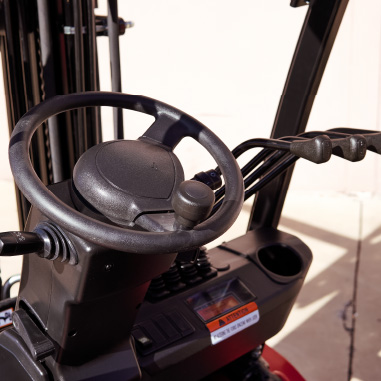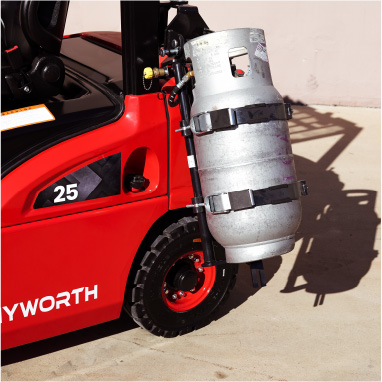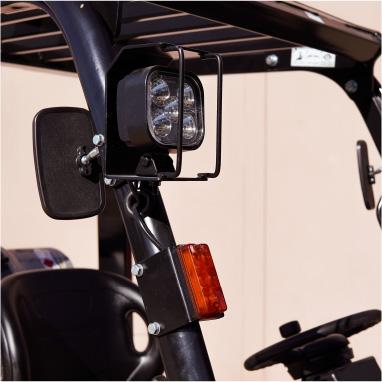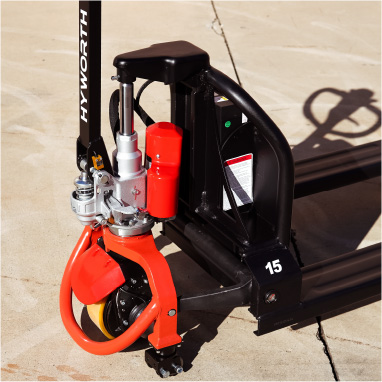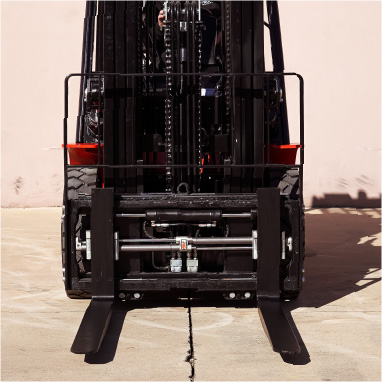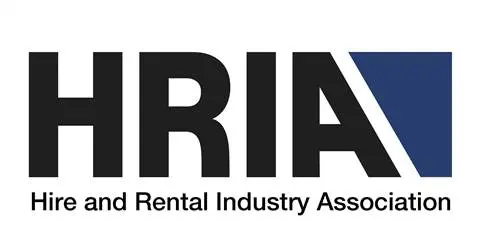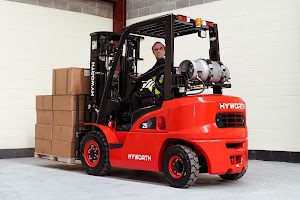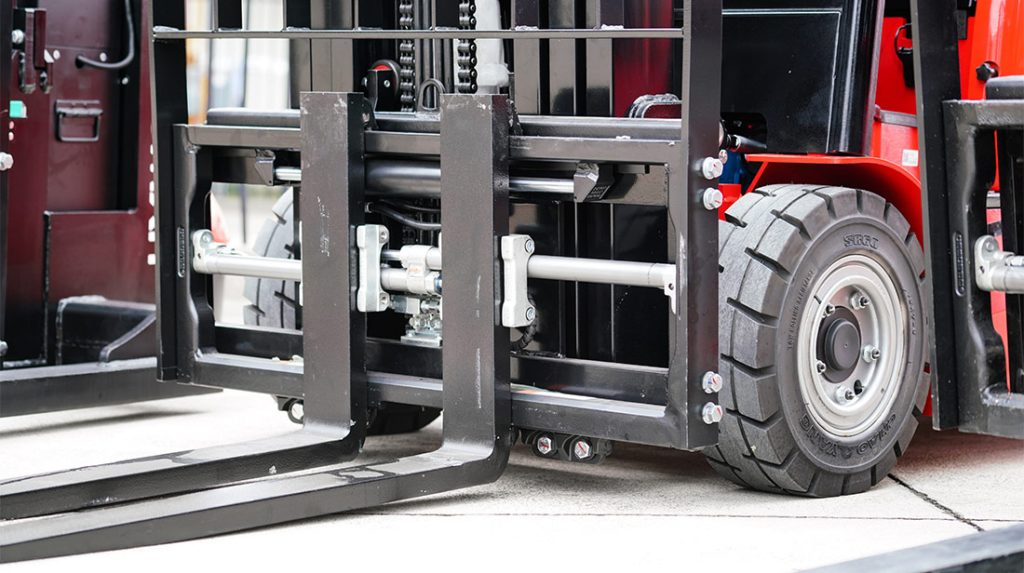
Selecting the ideal forklift tynes is key to ensuring your operations run smoothly and safely. These crucial parts of a forklift, the sturdy arms that do the heavy lifting, are vital for moving loads efficiently. The right tynes can make a big difference in your daily work, helping you handle materials faster while keeping everyone safe on the job.
In Australia, where different industries require forklifts for a wide range of tasks, understanding which tynes to choose is essential. This guide kicks off with a basic look at forklift tynes, underlining why they’re so important for your operations.
With the right forklift tynes, your workday can become a lot more productive and safer. Let’s dive into how to select the best tynes for your needs, ensuring you get the most out of your forklift.
What are forklift tynes?
Forklift tynes, also known as forks, play a pivotal role in the operation of forklifts. They are the long metal bars attached to the front of the forklift, designed to lift, carry, and move loads from one place to another. The efficiency and safety of forklift operations heavily rely on these essential components, making them indispensable in warehouses, construction sites, and manufacturing plants.
At the heart of forklift function, tynes engage directly with the load, sliding into pallets or beneath the goods to securely lift them. The design and build of the tynes allow for a range of materials to be handled with precision and care, minimising the risk of damage during movement. Whether it’s shifting heavy boxes in a warehouse or transporting construction materials across a site, forklift tynes ensure the task is done efficiently.
The strength and durability of tynes are crucial, as they must withstand the weight and pressures of daily tasks. Their ability to perform under such conditions ensures operations continue smoothly and safely. Understanding the key role of tynes highlights the importance of selecting the right type for your specific needs, ensuring your forklift operates at its best, day in and day out.
Key features to consider when selecting forklift tynes
When it comes to enhancing the efficiency and safety of your forklift operations, selecting the right forklift tynes is paramount. The material, size, and type of tynes are fundamental features that directly impact their performance and suitability for specific tasks. Let’s delve into these critical aspects to ensure you make an informed choice.
Materials
The material of forklift tynes plays a crucial role in their durability and capacity to handle loads. Steel is the most common material, prized for its strength and resilience. High-quality steel tynes can withstand the rigours of heavy lifting, reducing wear and extending their lifespan. When choosing tynes, considering the material’s quality and suitability for your work environment is essential.
Sizes
Size is another vital consideration. The length, width, and thickness of the tynes should match the types of loads you handle. Longer tynes are necessary for bulky items, while shorter ones might suit your needs if space is tight. Width and thickness also affect capacity; thicker, wider tynes can carry heavier loads. Ensuring the size matches your forklift’s specifications and your operational needs is key to maintaining safety and efficiency.
Types
Forklift tynes come in various types, each designed for specific applications. Standard tynes suit most lifting needs, but for specialised tasks, options like tapered, folding, or telescopic tynes might be necessary. The type you choose will depend on the nature of your materials and your working environment. Understanding the different types available allows you to select tynes that best fit your specific requirements, enhancing operational flexibility and productivity.
Choosing the right forklift tynes involves considering these key features closely. The right combination of material, size, and type will ensure your forklift is equipped to handle your specific loading tasks safely and efficiently.
How to choose the right forklift tynes
Selecting the right tyne is essential for optimising your operations and ensuring safety in the workplace. The correct tynes will not only fit your forklift perfectly but also match the specific needs of your tasks, from handling delicate goods to moving heavy loads. Here’s how to ensure you make the best choice, focusing on load capacity, fork length, and compatibility.
Firstly, consider the load capacity. The tynes you choose must be capable of safely supporting the weight of the materials you intend to lift. Overloading tynes can lead to dangerous situations, including the risk of tipping the forklift. It’s crucial to select tynes with a load capacity that exceeds your heaviest load, ensuring a margin of safety.
Fork length is another critical factor. The tynes should be long enough to fully support the load without causing instability. Too short, and you risk the load slipping off; too long, and navigating through tight spaces becomes a challenge. Measure your typical load sizes and choose tynes that provide stability and manoeuvrability.
Finally, forklift compatibility is paramount. Not all tynes fit all forklift models. Ensuring the tynes you select can be securely attached to your forklift is a must. This involves checking the mounting mechanism and the tynes’ size relative to your forklift’s capacity.
Choosing the right forklift tynes, by considering these factors, not only enhances efficiency but also significantly improves safety. Whether you’re lifting pallets, barrels, or any other materials, the right tynes make all the difference in handling tasks with ease and precision.
Maintaining your forklift tynes: Safety and efficiency
To ensure your forklift operates safely and efficiently, regular maintenance and careful inspection of the tynes are essential. These steps are not just about prolonging the life of your tynes; they’re about keeping your operations smooth and your team safe. Here’s how you can maintain your forklift tynes effectively.
Regular inspections are key
Start each day with a quick check of your forklift tynes. Look out for signs of wear, such as cracks or bends, particularly around the heel—the section that bears the most load. Small issues can quickly turn into major hazards if they’re not addressed promptly.
Ensure proper attachment
Safety isn’t just about the tynes themselves but also how they’re fitted to the forklift. Double-check that tynes are securely attached before use. Loose tynes can dramatically increase the risk of accidents.
Professional servicing makes a difference
While daily checks are crucial, having your forklift tynes inspected by a professional on a regular basis is equally important. They can identify potential problems that you might miss and suggest the best course of action, whether it’s repair or replacement.
Follow the manufacturer’s guidance
Adhering to the guidelines provided by your manufacturer is essential for safe operation. This includes not exceeding the recommended load capacity and ensuring the load is evenly distributed.
By maintaining your forklift tynes well, you’re not just taking care of your equipment; you’re also ensuring that every lift is safe and efficient. Regular inspections, correct fitting, and adherence to professional advice are all part of a strategy to keep your operations running without a hitch.
Conclusion
In summary, selecting the right forklift tynes is crucial for enhancing safety and efficiency in your operations. Remember, the choice of material, size, and type of tynes directly impacts their performance and suitability for specific tasks. Regular maintenance and avoiding common mistakes in selection and care are essential to ensure your forklift operates smoothly and safely. By considering these factors carefully, you can ensure optimal performance and longevity.
Are you ready to take your forklift operations to the next level? Explore our extensive range of forklift, designed to meet a variety of industrial needs. Whether you require standard specialised solutions, our team is here to provide personalised advice and support. Don’t let the wrong forklift hold back your efficiency and safety. Contact our sales team today for expert guidance or visit our website to submit an online enquiry. Let us help you find the perfect forklift for your business.
